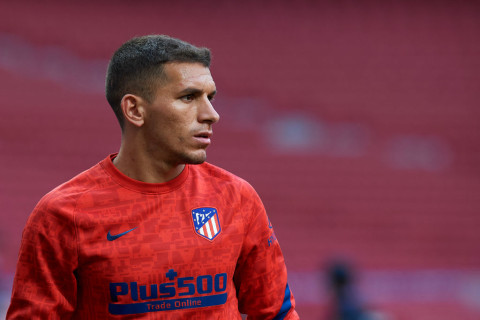
Arsenal midfielder Lucas Torreira has explained how he struggled so much during his second campaign at the club that he sought the help of a psychologist.
The Uruguayan moved to the Emirates from Sampdoria in 2018 for a fee of around £26m and fans took to the midfielder during his debut season, with Torreira earning plaudits for his determined performances.
But, Torreira found game time limited during his second year at Arsenal and Unai Emery’s exit midway through the campaign saw the player frozen out.
- Marcus Rashford set for crunch talks with Man Utd over shoulder injury
- Ferdinand names one doubt he has over Raphael Varane ahead of Man Utd move
- Kepa reveals the truth behind his infamous League Cup final clash with Maurizio Sarri
Torreira moved to Atletico Madrid on loan last summer window and the player is expected to be sold permanently this summer.
But the midfielder says the scars of his time with the Gunners are still present and that he had to seek help mentally in order to recover from his second season at the club as well as the death of his mother in 2020 from Covid-19.
‘A year ago I had been working with a psychologist in Spain because when in the second year at Arsenal I played very little,’ said Torreira.
‘It was hard for me to really assimilate it because my life depends on football and when I don’t play I have a very bad time, I am in a very bad mood and I many things happen. That’s why I started with him and he was giving me a hand with that topic.
‘Out there many years ago they told you “but how are you going to go to a psychologist, are you crazy?” And today it is very important, especially for us who live a lot of situations being away from the family. And when my mother’s thing happened, I wanted to stop playing soccer, I wanted to stay in Fray Bentos with my family. I had very little desire to go back to Spain because I had to stay alone there.
‘Luckily one of my brothers left with me, but I wanted to be here, with my father, because he was the one who was suffering the most and the one who was hurt the most by this whole situation.
‘He was always with my mother, they went everywhere together and today seeing him alone is a very hard blow that we find difficult to assimilate and we try to be with him, to help him, accompany him and also hold him so that he does not fall because now we have to continue, for us, for him and because the most important reason to continue living is always going to be our mother.’

Leave a Reply